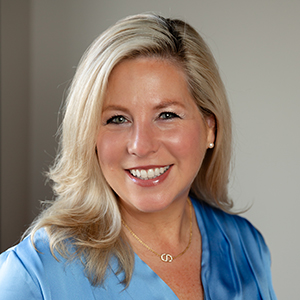


Manulife Investment Management
197 Clarendon St, Boston, MA 02116, United States

Amy Theuninck
Managing Director, Insurance Solutions
atheuninck@manulife.com
857-328-6425
About Manulife Investment Management
Manulife Investment Management is the global wealth and asset management segment of Manulife Financial Corporation. We draw on more than a century of financial stewardship and the full resources of our parent company to serve individuals, institutions, and retirement plan members worldwide. Headquartered in Toronto and Boston, our leading capabilities in public and private markets are strengthened by an investment footprint that spans 19 countries and territories. Our private markets strategies include private equity and credit, real estate, infrastructure, timber, and agriculture. Responsible stewardship is integral to our business and culture, and we seek to be a global leader in creating long-term, sustainable, value for our stakeholders.
Episode 268: The Power of Patient Capital: Navigating Private Credit Through Market Cycles
Join host Stewart Foley, CFA on the InsuranceAUM.com Podcast as we explore direct lending, sponsored finance, and middle market private equity, with insights into private credit opportunities for insurance investors.
More innovation on the horizon for private markets
Episode 264: The Future of Real Estate: Trends and Strategies with Maggie Coleman
The case for convertible bonds: understanding their role in an insurance portfolio
The ABC of MAC: how multi-asset credit strategies can offer dynamic performance across the economic cycle
A thematic framework for investing in the nature and climate transition
Hiding in plain sight: have emerging markets been overlooked for too long?
Assessing China’s latest stimulus measures: what do they mean for investors?
Beyond the ballot: the real drivers behind stock market performance
Regenerative agriculture: optimizing outputs
Episode 244: Risk, Opportunity, and Flexibility in Today's Credit Market: Jason Walker of Manulife CQS
Jason Walker is the Co-Chief Investment Officer at Manulife CQS.
CQS CLO Equity
Opportunities in ABS Markets
ABC of Regulatory Capital
Regulatory Capital
The dividends of policy divergence
How carbon markets bolster timberland investing
Flip-flops: on the path to plastics circularity or a watery grave?
With Fed easing potentially on hold, what does this mean for fixed income?
Regenerative real estate investing
Regenerative agriculture: definition, implementation, and impact
The continuing evolution of investment stewardship
The keys to success in GP-led secondaries deals
Managing interest-rate risk in 2024 and beyond
Expanding the efficient frontier with natural capital investments
Today’s fixed-income landscape sets the stage for active management
The resilient U.S. economy puts stocks on solid footing
Episode 195: Infrastructure Equity with Manulife’s John Anderson
John Anderson is the Global Head of Corporate Finance and Infrastructure at Manulife Investment Management and John Hancock Life Insurance.
Have investors missed the opportunity in municipal bonds?
Investing in the power of nature
Direct lending outlook: four expectations for 2024
Direct lending’s days as an esoteric asset class are no more. Offering the potential for attractive yields, reduced volatility, and portfolio diversification, this substantial segment of the private credit market seems to be becoming a core allocation for insurers, pensions, family offices, and income investors of all stripes. We believe this very moment represents an attractive entry point—and that direct lending is likely to continue shining as a critical part of a diversified portfolio in the year ahead.
Episode 185: Unlocking Forest Carbon Opportunities with Eric Cooperstrom
Eric Cooperstrom is the Managing Director of Impact Investing in Natural Climate Solutions at Manulife Investment Management.
The opportunities and challenges of international trade in agriculture
An imbalance between limited natural resources and the growing appetite for farm products makes agricultural trade critical to meeting global food demand, bringing with it further opportunities for agricultural producers, agribusinesses, and investors.
An LP’s guide to a reckoning in private equity
Until 2022, the past dozen years had been kind to most private equity firms. Returns were strong and fundraising followed. Even mediocre managers were able to grow. A reckoning is coming, however, amid more challenging conditions. While some firms will adapt and flourish, others won’t. Minding two megatrends may help alert LPs to discern the difference.
Building confidence: ICVCM Core Carbon Principles Assessment Framework released
The ICVCM has detailed its assessment framework, which will serve as the initial bar for determining carbon credit quality. Meaningful implications for carbon markets are likely around the corner. We share our evaluation of this quarter’s publication.
Why invest in agriculture now?
The solid fundamentals supporting farmland as an asset class remain. Now, new advances are sustainably increasing farmland yields while creating additional income streams.
Enhancing farmland value through sustainable improvements
Sustainable agriculture can promote healthier and more diverse farmland ecosystems while aiming to enhance efficiency and profitability.
Episode 149: Capturing Alpha in the Secondary Market through GP-Led Transactions
Paul Sanabria and Jeff Hammer are Senior Managing Directors and Global Co-Heads of Secondaries at Manulife Investment Management.
Mezzanine financing can shine when macro clouds loom
Yields have spiked, yet they may soon fall if the economy stalls. Investors extending junior credit, or mezzanine financing, to middle market companies now have an opportunity to lock in fixed-rate contractual coupons while they’re still high and while terms remain favorable for lenders.
Q3 2023 Global Macro Outlook: The long and winding road
Resilience has always been viewed as a good thing. As asset allocators, it's our goal to construct portfolios that can withstand market events and do well in economic downturns. In this instance, however, resilience may not actually work in investors’ favor. The unexpected economic strength on display could—ironically—delay the path to recovery.
Data, data, everywhere: Three-minute macro
Data is our word of the month. Despite some surprising signs of economic resilience in the United States, our leading indicators still have us convinced a recession is on the way. Meanwhile, we don’t think the strong unemployment rate is a perfectly accurate description of the current (and future) labor market. Finally, the S&P 500 Index is looking strong so far this year, but we dive into how much of that performance is due to the AI craze.
Five factors influencing the effectiveness of a 60/40 portfolio
Market commentators have devoted much energy over the past year to debating whether it’s time to write off the traditional 60/40 approach to investing that broadly allocates 60% of a portfolio to equities and 40% to fixed income.
The pause before the pivot: positioning bond portfolios for an evolving policy landscape
The dramatic reversal in central bank policy over the past year and a half has created plentiful opportunities in many segments of the bond market, as well as meaningfully higher yields.
Private equity secondaries are meeting the moment
The measure of the health of any market is whether a willing buyer can find an interested seller. That’s happening in today’s secondary market, and it’s happening at a scale that stands in contrast to other capital markets.
Building confidence in the voluntary carbon market: the ICVCM's Core Carbon Principles
The publication of the Core Carbon Principles criteria for carbon programs is an important first step for strengthening confidence and should be closely followed by market participants.
U.S. farmland investment returns: continued gains in 2022
Our optimistic outlook for U.S. agricultural investments continues following overall outstanding performance.
Default or not, 2011’s debt ceiling battle is instructive for today’s investors
With Congress and the White House again struggling to reach an agreement to avert a potential U.S. government debt default, investors assessing the latter stages of the spring 2023 debt ceiling conflict would do well to study how a similar battle played out in the summer of 2011, delivering a short-term blow to financial markets.
What Singapore's electronics sector tells us about Asia
Singapore’s electronics industry is a vital node in the global electronics market and is particularly exposed to the changes in the global demand for electronics. Learn why the industry’s health could be seen as a proxy for the region’s economic health.
ESG ratings and data: From misalignments to global standards
Environmental, social, and governance ratings and data provided by professional services firms are fast becoming an essential part of the sustainable finance market infrastructure. But these ratings seem to shed as much light as they provoke confusion. We take a look at the current state of ESG ratings, consider some of the factors driving differences among competing rating providers, and offer a view on the future of these tools.
The arc of progress in global carbon markets bends toward integrity
As the world continues to adapt to climate change, carbon markets are integral to aiding the transition to net-zero emissions. Carbon markets must continue to strengthen to build stakeholder confidence and ensure that climate mitigation is delivered, highlighting the importance of establishing clear carbon standards that are systematically applied throughout development and management lifecycles to ensure quality and integrity.


 PODCAST
PODCAST
















































